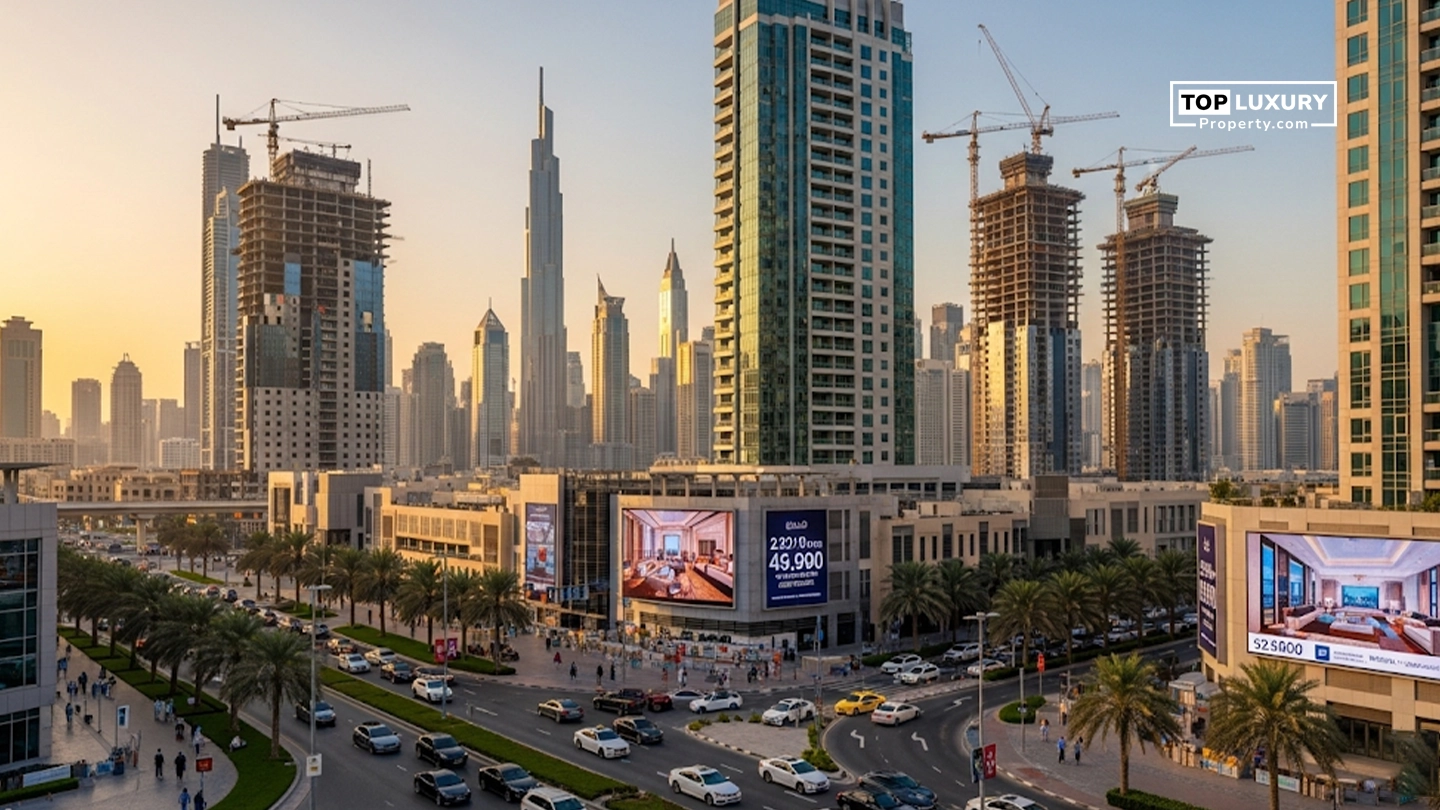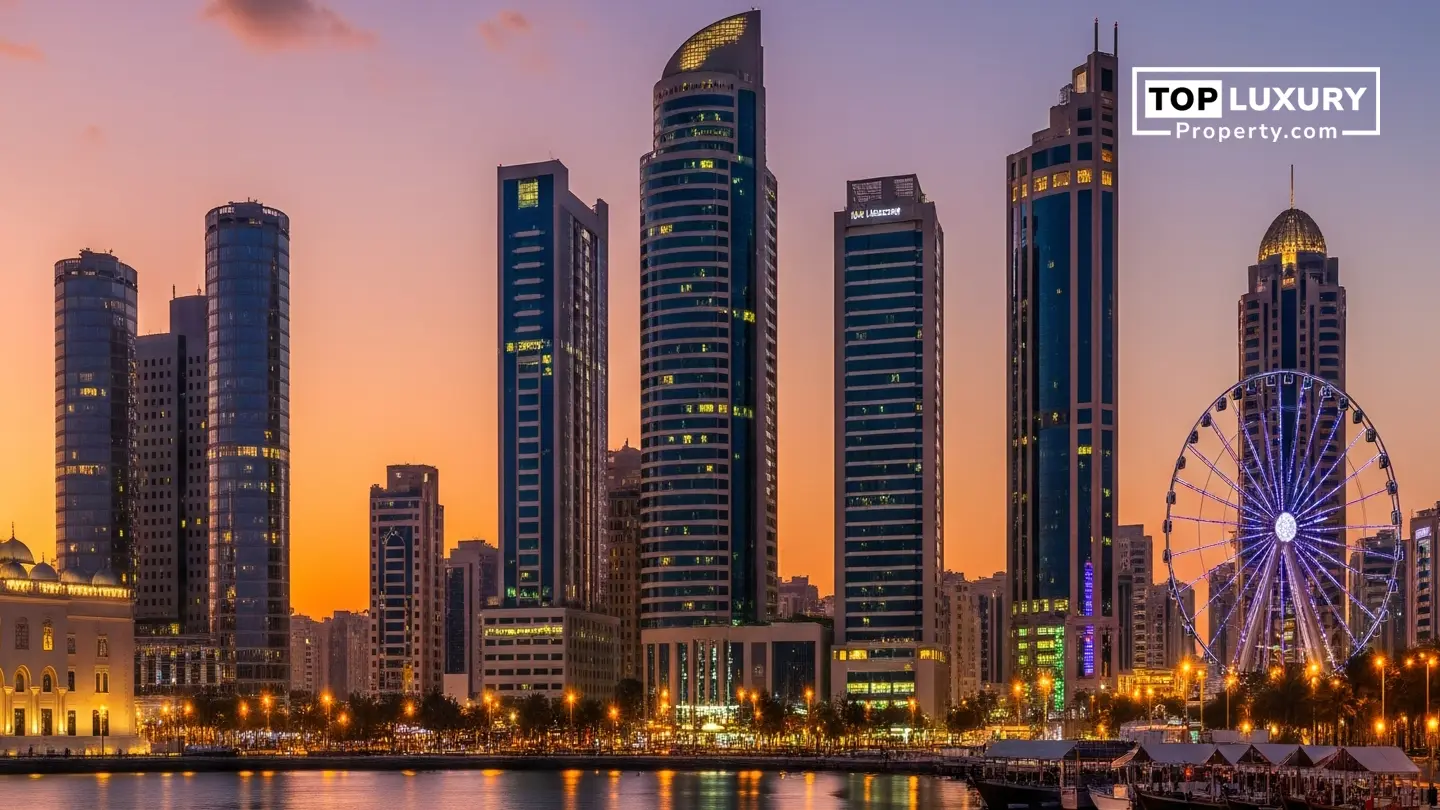 Jan 29, 2026
Jan 29, 2026Introduction
If you are buying property in Dubai in 2026, you need due diligence before you sign anything or pay a booking amount. Due diligence means you verify the property, the seller, the developer, the legal status, and the real costs, so you do not face surprises later. Dubai is a regulated market, but scams, hidden charges, and contract gaps can still happen if you move fast without checks.
In this guide, you will follow a clear, step by step approach in simple terms. You will also see how your choices matter early, especially when deciding between ready property and off plan. When you choose based on verified facts, you reduce risk and you negotiate better.
Start With Your Buying Choice
Before you check documents, lock your purchase type and goal. This helps you focus on the right checks and avoid wasting time on the wrong property. It also changes which risks matter most, because off plan and ready units have different weak points.
You should be clear on your budget, payment timeline, and how long you plan to hold the property. You also need to decide whether the unit is for living, long term rent, or short term rent. Once your choice is clear, you can set a practical checklist and follow it without confusion.
Choose ready or off plan Property
A ready property usually needs stronger checks on unit condition, building quality, and service charge history. An off plan purchase needs stronger checks on escrow, developer track record, project status, and handover terms.
Use these quick points to guide your choice:
- Choose ready if you want to inspect the unit and see the community in real time.
- Choose off plan if you accept construction timeline risk and want staged payments.
- Avoid choosing only based on brochures or promised returns.
Set your non negotiables early
Write down the points you will not compromise on. This keeps you consistent when an agent pushes urgency.
Common non negotiables are:
- Maximum total budget including fees.
- Minimum size, view, and parking needs.
- A clear rule on whether you will accept a mortgaged property.
- A rule on whether short term rental is important for you.
Collect basic property identifiers
You will need correct identifiers for later checks. If details do not match across documents, treat it as a red flag and pause.
Ask for:
- Title deed copy for ready property, or Oqood details for off plan.
- Exact unit number, building name, and master developer community name.
- Seller name matching the ownership record.
Legal And Regulatory Due Diligence
This stage is about confirming the property is real, the seller can sell it, and the project is properly registered. You should do this before you sign the Memorandum of Understanding or pay any non-refundable amount. Many costly problems start when buyers trust verbal claims.
Dubai provides official tools for verification, and you should use them instead of relying only on screenshots. When something looks unclear, get a qualified real estate lawyer to review documents and advise on risk.
Verify the title deed with DLD
For ready properties, verify the title deed using Dubai Land Department’s Title Deed Verification eService. This helps confirm whether the deed details are valid in the DLD system.
If the seller does not want you to verify the deed, stop and reassess. If your agent says it is not needed, treat that as a warning sign.
Confirm identity and selling authority
Make sure the seller is the legal owner, or has a valid Power of Attorney that allows the sale. If it is a company-owned unit, confirm the signatory has the authority to sell.
Also, confirm there is no ownership mismatch between:
- The title deed record.
- The passport or Emirates ID copy.
- The sale agreement details.
Check mortgage, liens, and disputes
If the property is mortgaged, you need a clear process for mortgage release and settlement at transfer. Ask for written confirmation on how the mortgage will be cleared and who pays related costs.
If there is any dispute, unpaid dues, or legal notice linked to the unit, you need clarity before proceeding. A lawyer can help confirm the safest approach.
Off-plan checks: escrow and project registration
For off-plan property purchases, confirm the project has a dedicated escrow account and that buyer payments go into the escrow as required. Dubai Land Department FAQs state that buyer payments must be paid into the escrow account, supporting buyer protection in off plan sales.
Also, verify the developer and the project status using official channels where possible. Do not accept “escrow is approved” as a verbal statement only.
Confirm community rules that affect usage
Rules in some communities can affect your plan, especially for short-term rental or business use. Before you buy, ask the building management or community management about restrictions, required permits, and any approval steps.
If short-term rental matters to you, get written confirmation of what is allowed and what is not.
Financial And Technical Due Diligence
This stage is about the real cost of ownership and the real condition of the unit. Many buyers focus only on the purchase price and ignore yearly charges, fit-out issues, and repair costs. Those factors can change your return and your stress level.
Do this part slowly and keep written notes. When numbers and conditions are clear, you can negotiate with confidence and avoid regret after transfer.
Calculate total cost, not just price
Your total cost includes more than the property price. Ask for a full cost breakdown from your broker, and cross-check it with the trustee or conveyancing team.
Include:
- DLD fees and trustee charges were applicable.
- Agency commission and VAT, where applicable.
- Mortgage-related fees if you take a loan.
- Utility deposits and move-in costs.
- Any immediate repair or furnishing costs.
Review service charges and extra community fees
Service charges can change your net rental yield, especially in premium towers with many facilities. Ask for the latest service charge details and any planned special assessments.
Questions to ask:
- What is the current service charge per square foot?
- Are there major repairs planned that could increase charges?
- Are there extra chiller charges or district cooling fees?
Validate rental income assumptions
If you are buying for investment, check rental comps and vacancy trends for the same building and nearby similar buildings. Avoid relying on inflated “guaranteed ROI” style claims.
To keep it practical:
- Compare at least 5 similar listings and 3 recent transactions if available.
- Use conservative rent estimates and include vacancy time.
- Deduct service charges and maintenance when estimating net return.
Inspect the unit and building condition
For ready properties, do a proper inspection, not just a viewing. A short visit can miss defects that later cost money.
Focus on:
- Water leaks, damp patches, and ceiling stains.
- AC performance and unusual noise.
- Doors, windows, and balcony safety.
- Common area condition, elevators, and parking.
If possible, use a professional snagging or inspection company, especially for larger units.
Match what you saw with what you sign
Ensure the unit size, layout, balcony, parking, and view match what is written in the sale documents. If marketing material shows something different, ignore the marketing and follow the contract.
If there is any mismatch, request a correction in writing before you proceed.
The Essential Due Diligence Checklist for Dubai Property Investors
| Due Diligence Area | Key Checks | Why Care? |
|---|---|---|
| Ownership Verification | DLD Confirm title deed | Avoids frauds and unlawful sales |
| Developer Credentials | RERA registration, previous delivery record, escrow bank account | Minimizes off-plan delivery risk |
| Property Inspection | Technical review, Snag list, Checks on compliance | Identifies concealed flaws |
| Financial Review | Service fees, payment plans conditions, ROI approximations | Avoids cash negative flow |
| Legal Compliance | No encumbrances, disputes or zoning problems | Prevents litigation |
| Market Assessment | Compare alike listings, demand patterns | Guarantees reasonable |
Conclusion
In 2026, due diligence in Dubai real estate is the simplest way to protect your money and your peace of mind. Start by being clear on your choice, ready or off-plan, because that decides what risks you must focus on. Then, verify ownership and project details through official channels like DLD title deed verification and escrow requirements for off-plan payments.
If you want, share whether you are buying ready or off plan, plus the area and budget range, and the outline can be adjusted to match your exact situation.









